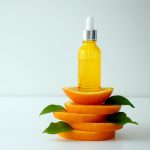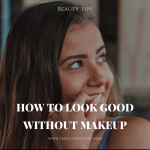Do you have acne? Dermatologists recommend a hydrafacial is one of the treatment options for acne in dermatology but does it work?
Yes. Hydrafacials are an excellent acne treatment. Studies show that the procedure improves your appearance remarkably. Each step in hydrafacial treatment plays a significant role in managing your skin’s health. However, dermatologists caution against its use in active acne because of inflammation.
Although hydrafacials are safe for all skin types, they’re particularly suited for acne-prone skin. Acne is a skin condition that happens when excess sebum oil and dead skin cells clog hair follicles.
This clogging results in blackheads, whiteheads, and pimples that may scar the skin. This condition alters one’s appearance and may affect his/her mental health. Hydrafacial steps remove these impurities, fade acne scars, and maintain your skin’s health gradually.

How hydrafacials help acne-prone skin
According to a recent study, hydrafacial treatments coupled with Blue LED lights, treat and manage acne. The subjects in the research reported clearer skin that looked more radiant, healthier, and less oil or congested. These changes are observed in clients after these basic hydrafacial steps;
- Exfoliate to remove the oil, dirt, or debris that causes acne. Doctors use a gentle wand or machine for this step. The tool doesn’t mechanically irritate your skin.
- Peel with salicylic and glycolic acids as chemical peels to remove acne marks and lighten hyperpigmentation. An esthetician can use varying strengths of the chemical peels depending on the severity of acne scarring. According to reviews, 4-6 peels will significantly improve your acne.
- Extract dead skin cells using a patented nozzle to gently suctions and unclog pores.
- Apply a customized hydrating serum that’s rich in hyaluronic acid, antioxidants like Vitamin A and E to brighten and improve your skin’s elasticity
Related Posts
Some estheticians add the Blue LED lights as the last step to reduce skin redness, kill bacteria, and stimulate collagen production. Collagen is an important protein used to repair acne-related wounds and scars.
Notably, dermatologists recommend hydrafacials for inactive acne only. The treatment is not ideal for active, severe, and inflammatory acne. Unfortunately, in some rare cases, people report acne breakouts as an adverse side effect.
How long does a hydrafacial last
You’ll enjoy the benefits of your hydrafacial for approximately 1 week. You’ll need a series of monthly treatments for maintenance for best results.
Also, there are hydrafacial boosters like Dermabuilder and Britenol which prolong the benefits of your primary treatment. Lastly, your esthetician should advise you on an ideal frequency to match your skincare goals.

Acne myths debunked
After learning how hydrafacials work in acne treatment, we should understand misconceptions that may affect acne-prone skin. Hydrafacials and other skin treatments aren’t solely responsible for healthy skin.
| Myth | Fact |
| I can dry my acne to heal it |
Dry skin makes acne more uncomfortable. Drying your skin doesn’t kill bacteria and keep your pores clean |
|
Dirty skin causes acne. I must frequently clean my face with strong soaps and cleansers. |
Frequent washing irritates and clogs your pores. |
|
There’s a cure for acne |
There’s no cure for acne; one simply manages until he/she outgrows it |
|
I don’t need sunscreen because the sun dries my acne |
Sunscreen hydrates your skin, prevents irritation, and stops hyperpigmentation of acne scars |
|
High-calorie foods and salt cause acne such as sugar and french fries |
These foods don’t cause acne, they make the existing condition worse |
|
I can let my acne run its course |
Ignoring your acne increases the risk of infection and scarring |
Conclusion
A hydrafacial is one of the most ideal treatments for acne. The chemical peels and Blue LED lights used in hydrafacials manage acne effectively. A skincare professional should assess your skin sensitivity before treatment. Hydrafacials are ideal for inactive cases of acne only.
Frequently Asked Questions
- How should I take care of my skin after a hydrafacial?
Wear sunscreen because facials make your skin sensitive to the sun. Don’t wash your skin shortly after the treatment. Avoid retinoids 3 days before and after the hydrafacial because of sensitivity. If tightness, redness, and swelling persist after 24 hours visit your esthetician.
- Are hydrafacials painful?
Unlike most cosmetic procedures like mechanical extractions, hydrafacials are painless. You may feel slight discomfort after the treatment that typically fades after a day. Use a cold compress for relief.





